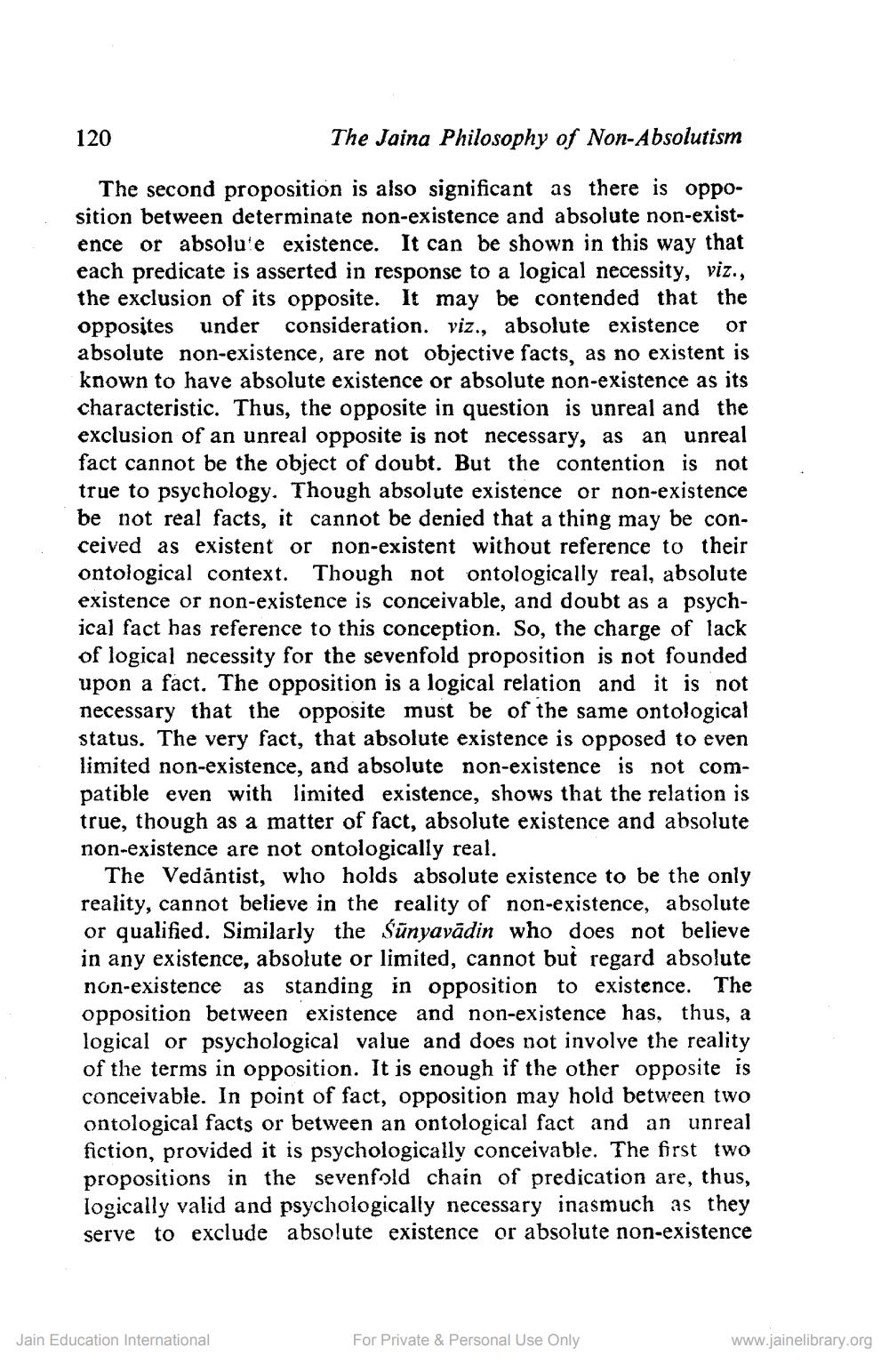________________
120
The Jaina Philosophy of Non-Absolutism
The second proposition is also significant as there is opposition between determinate non-existence and absolute non-existence or absolule existence. It can be shown in this way that each predicate is asserted in response to a logical necessity, viz., the exclusion of its opposite. It may be contended that the opposites under consideration. viz., absolute existence or absolute non-existence, are not objective facts, as no existent is known to have absolute existence or absolute non-existence as its characteristic. Thus, the opposite in question is unreal and the exclusion of an unreal opposite is not necessary, as an unreal fact cannot be the object of doubt. But the contention is not true to psychology. Though absolute existence or non-existence be not real facts, it cannot be denied that a thing may be conceived as existent or non-existent without reference to their ontological context. Though not ontologically real, absolute existence or non-existence is conceivable, and doubt as a psychical fact has reference to this conception. So, the charge of lack of logical necessity for the sevenfold proposition is not founded upon a fact. The opposition is a logical relation and it is not necessary that the opposite must be of the same ontological status. The very fact, that absolute existence is opposed to even limited non-existence, and absolute non-existence is not compatible even with limited existence, shows that the relation is true, though as a matter of fact, absolute existence and absolute non-existence are not ontologically real.
The Vedāntist, who holds absolute existence to be the only reality, cannot believe in the reality of non-existence, absolute or qualified. Similarly the Sünyavādin who does not believe in any existence, absolute or limited, cannot but regard absolute non-existence as standing in opposition to existence. The opposition between existence and non-existence has, thus, a logical or psychological value and does not involve the reality of the terms in opposition. It is enough if the other opposite is conceivable. In point of fact, opposition may hold between two ontological facts or between an ontological fact and an unreal fiction, provided it is psychologically conceivable. The first two propositions in the sevenfold chain of predication are, thus, logically valid and psychologically necessary inasmuch as they serve to exclude absolute existence or absolute non-existence
Jain Education International
For Private & Personal Use Only
www.jainelibrary.org




